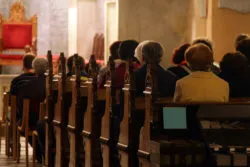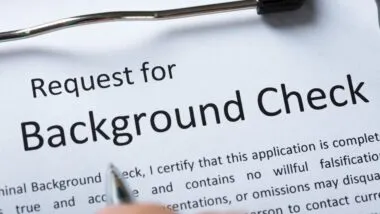 In August, a Pennsylvania grand jury publicly released information from a report indicating that Catholic church sex abuse cases perpetrated by priests across several state counties affected around 1,000 young people.
In August, a Pennsylvania grand jury publicly released information from a report indicating that Catholic church sex abuse cases perpetrated by priests across several state counties affected around 1,000 young people.
The grand jury reviewed Catholic church sex abuse cases where there were records of complaints from several dioceses in Pennsylvania, including Allentown, Erie, Greensburg, Harrisburg, Pittsburgh, and Scranton. Two dioceses, Philadelphia and Altoona-Johnstown, had undergone previous grand jury scrutiny and were not included in this report.
What these Catholic church sex abuse cases had in common, according to the grand jury, was that there was a clear and present record of other leaders within the religious institution attempting to cover up the actions of individual perpetrating priests.
The Catholic church sex abuse cases were identified through subpoenaing massive amounts of internal diocesan documents going back seven decades. The paper trail was systematically reviewed in great detail by the jury.
Records of the Catholic church sex abuse cases contained allegations made against 300 different priests. From these church documents alone, around 1,000 victims of child sex abuse were named along with those participating in keeping these actions hidden.
The grand jury additionally relied upon eye witness collaboration to substantiate the accusations of Catholic church sex abuse cases.
The release of this report from the Pennsylvania grand jury came with unfortunate news that due to the passing of the statutory limitations period, the majority of those perpetrating Catholic clergy could not be charged for their manipulative and abusive actions toward prepubescent children and teenagers of both sexes.
Because of the statute of limitations, which many feel places an unfair burden on childhood victims, the 300 identified Pennsylvania priests will likely never face criminal prosecution. Nevertheless, the grand jury came up with multiple suggestions to prevent this situation in the future:
- Eliminate all time limitations on reporting sexual abuse for child victims—the records examined included Catholic church sex abuse cases spanning as far back as 70 years.
While the age end date by which a victim of childhood sexual abuse has to come forward and name names has been moved back to age 50, many victims are older and still need help to do so. Of particular consideration, is the fact that the abuse occurred at an age when they didn’t have the psychological or emotional development to even identify what happened as abusive.
- Pass laws with severe consequences for third parties who fail to report child sexual abuse—when these laws are enacted or in areas where they are already in place, work to clarify penalties for non-disclosure in the face of registered complaints.
Were you or a loved one sexually abused as a child in the context of a Pennsylvania diocese of the Catholic church? You may benefit from participating in a Pennsylvania Catholic sex abuse lawsuit investigation. Fill out the form on this page to request a free and confidential legal consultation.
If you or a loved one was the victim of sex abuse by a Catholic priest or church leader in Pennsylvania, legal help is available. You may qualify to file a Catholic Church sex abuse lawsuit. Fill out the FREE form on this page for more information.
ATTORNEY ADVERTISING
Top Class Actions is a Proud Member of the American Bar Association
LEGAL INFORMATION IS NOT LEGAL ADVICE
Top Class Actions Legal Statement
©2008 – 2026 Top Class Actions® LLC
Various Trademarks held by their respective owners
This website is not intended for viewing or usage by European Union citizens.
Get Help – It’s Free
Join a Free Pennsylvania Catholic Church Sex Abuse Lawsuit Investigation
If you qualify, an attorney will contact you to discuss the details of your potential case at no charge to you.
PLEASE NOTE: If you want to participate in this investigation, it is imperative that you reply to the law firm if they call or email you. Failing to do so may result in you not getting signed up as a client or getting you dropped as a client.
E-mail any problems with this form to:
[email protected].












